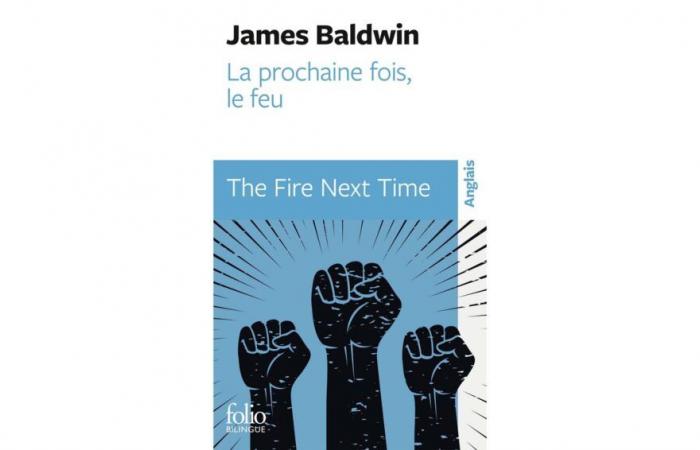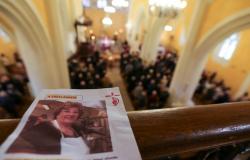Titre : Next time, fire
Auteur : James Baldwin
Edit: Gallimard
Collection : Bilingual Folio
Publication date: August 15, 2024
Genre of the book: Essay
James Baldwin published Next time, fire in 1962. For this 2024 edition, composed of the English text and the translation by Michel Sciama, the book is divided into two parts: “And my dungeon trembled… Letter to my nephew on the occasion of the centenary of Emancipation” and “At the foot of the Cross. Letter from a region of my mind.” The first is only a few pages long, the second takes up most of the book.
It is both an opportunity to be able to read Baldwin in his original version and a challenge, linked to the instant French translation. For my part, I started with the text in French before reading its English version, sometimes with a certain desire to learn more. Because the French translation seems a little dated and sentences light up when reading the words in Baldwin's mother tongue. We come to wonder how Michel Sciama came to translate certain sentences which do not shed light on this sometimes somewhat obscure text.
Baldwin writes an essay here, focusing mainly on the place of black Americans in social, cultural space. He returns to get used to his youth in Harlem, alongside junkies, prostitutes and priests. Attracted by this world of the street, Baldwin found a certain meaning in a church and very quickly became a pastor, while he was still very young. Next time, firehowever, is not a biography. Baldwin remains quite vague, both in form and substance, about his life. He has no illusions about the church, which he compares to the rackets of drug dealers, nor about what awaits the black American population in white racist America.
Baldwin's train of thought in The Fire Next Time is not always very readable. If his fight is very clear, his writings lack precision or are perhaps dated. It's a way of saying things by splitting hairs while avoiding the heart of the subject which is a little off-putting. This is why, moreover, if his fight is the fight for the rights of African-Americans, the book is in no way a political program, because this fight is in itself impossible, as the author senses and experiences. When we finish the book, we are no further ahead on what should be done to make black Americans less killed and beaten by the police, as Baldwin himself experienced.
The book is more interesting, in my opinion, when it describes specific events. So this moment when James Baldwin speaks of his invitation to meet Elijah Muhammad, leader of the Black Muslims and then considered a great preacher for the cause of black Americans. His visit to the heart of the cult and all its men (apart from the women) who become one with Muhammad are the occasion for interesting reflections, both on this messiah figure and on the African-American fight. One of the political points discussed was to “return” lands and states (those in the South, 6 or 8 in total) to blacks as a compensatory tribute for the terror suffered by slavery, its numerous consequences even today. and its dead. Without knowing whether this political discourse is still on the table or desired, in 2024, it is an opportunity for real reflection on the place of Black people in America, between Christians and Muslims, and the possible retribution of a nation for all the daily violence, past and present.






